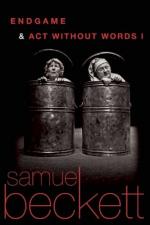|
This section contains 5,609 words (approx. 19 pages at 300 words per page) |

|
After the little canters of Waiting for Godot, Beckett composed a substantial "chronicle" for Endgame, providing one of the best examples of extended narrative as an essential part of drama: the presence of story is unmistakable here, both to the audience and to characters within the play. Hamm refers by name to his "chronicle" and is self-conscious in his narration of it, aware of himself assuming the role of historian, aware of himself adopting a special voice and manner setting off these words from his other speech. His chronicle itself has to do both with origins and with ends; it "accounts for" an entire world by presenting critical events and interpreting their meaning. Hamm is the Moses of a garden desolate, the Polidore Virgile of a wrecked kingdom. He records bereft existence, a modern inversion of "providential history." The whole point of Endgame lies in the interrelationship between...
|
This section contains 5,609 words (approx. 19 pages at 300 words per page) |

|


